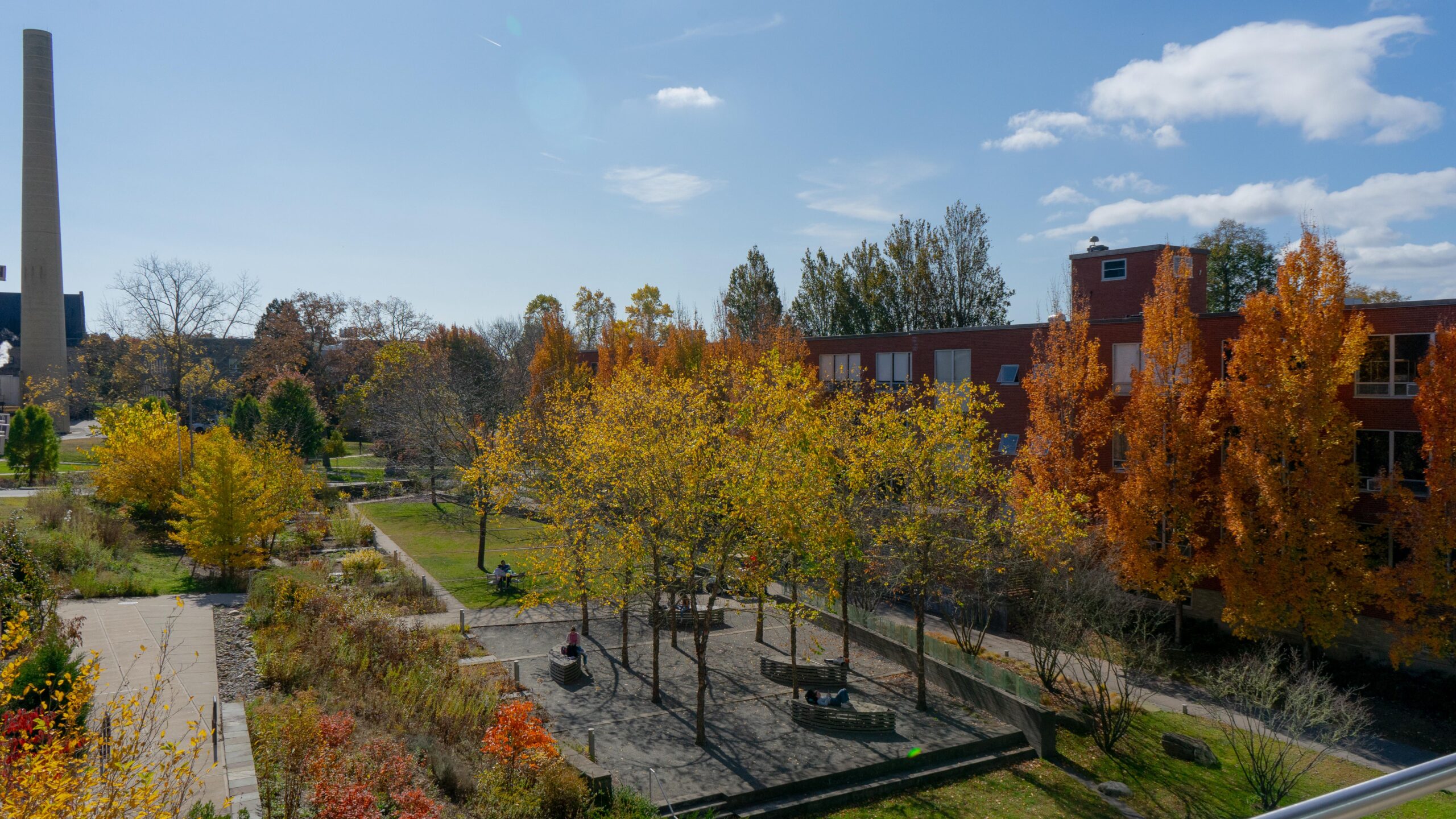During one session of the University of Rhode Island’s therapeutic horticulture group, students focused on the benefits of weeding – paralleling the process to removing things in their lives that no longer serve them.
The therapeutic horticulture group connects students to their minds and bodies by creating something new and beautiful for themselves and others, according to Elizabeth Leibovitz, a garden coordinator in the College of Pharmacy.
“[Developing the program] is like gardening – figuring out which plants work in your very specific location and which don’t, and you evolve and adapt,” Warren Schwartz said, a master gardener and psychologist at URI.
Schwartz, along with Elizabeth Leibovitz, began this program in fall 2023. They felt compelled to create a place where students could destress and focus on mindfulness and meditation, according to Schwartz.
“We want to do more of the gardening aspect with the recognition that gardening is inherently therapeutic,” Leibovitz said. “There’s something about working with your hands that is just very healing and connects you to your body.”
Over the course of a semester, the program consists of eight sessions, each 90 minutes in length. Each session begins with a type of meditation or reflection for students, commonly sparked with a poem or discussion, and ends with work in the medicinal garden, according to Leibovitz.
“We’re learning as we go because this is a new process for both of us,” Leibovitz said. “We’re recycling the things that work really well, getting rid of the things that don’t seem to be a big hit and adding new activities every time we run the program.”
Located between Woodward Hall, Tyler Hall and Avedisian Hall, the medicinal garden is in a fairly central location so that the plants can inspire all those who walk by, according to Leibovitz.
“We also need to work on creating a space that itself is therapeutic,” Schwartz said. “We’re modifying an area of the medicinal garden so that it can include a multisensory, peaceful experience as people walk through it as they’re going to class or coming out of class or coming out of an exam and feeling stressed.”
The students in the group help actualize the goal of bringing the space together to form something that brings peace to all who experience the garden, according to Schwartz.
Ecoliteracy, the ability to understand how natural systems work, and how to use that knowledge, has become another large part of the group’s goals, according to Leibovitz. The purpose is to allow people to feel more connected and knowledgeable about the place they live in.
“It’s not therapy, but it’s supposed to be therapeutic,” Leibovitz said. “As part of that, we think connection to nature is therapeutic. It’s therapeutic to know something about where you live, to pay attention to seasons, to pay attention to plants as they change.”
Schwartz and Leibovitz said they want to continue this program for as long as they are able, with the hopes that it will expand, allowing them to start a second section run by other members of the URI community. Currently, the group consists of about eight students, however, in past semesters it has held as many as 12.
The horticulture therapy group’s next section of weekly sessions begin Feb. 29, 2025 and conclude eight sessions later on April 25. Students can apply through the URI Counseling Center’s website .





